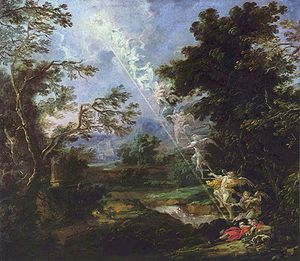Dreaming
Dreams are our nighttime visitors, the succession of images containing ideas, emotions and sensations that come upon us when we sleep. Dreams are illogical, involuntary, mythopoetic messages from our unconscious that speak a symbolic language.
Everyone dreams (whether remembered or not). Dreams are one of our greatest natural resources. I have been attending to my dreams for the past 40 years, and the first dream I remember occurred when I was three years old; it contained images related to emotional material that compels my psychic journey. I turn to my dreams for direction and counsel; my daily attention to them deepens my life. Their many psychic benefits influenced the direction my life and work has taken, and why their analysis comes to hold a special place in my therapeutic work. Dreams give voice and images to our difficult feelings; just giving them our attention becomes a therapeutic process in itself. Dreams present the dreamer with revelations that can help resolve emotional and spiritual problems and fears.
Many people will say “I never remember my dreams”. Yet once they begin to pay attention they do. A dialogue begins between the unconscious mind expressed through dreams, and the waking individual’s efforts to understand and come into relationship with his or her inner life.
HOW TO REMEMBER YOUR DREAMS
A dream that is not understood remains a mere occurrence;
understood, it becomes a living experience. –CG Jung
Go to sleep prepared. Keep a journal by your bed with a pen.
As soon as you open your eyes, review your mind for a dream.
Write it down. Identify key images from the dream and create a title for your dream.
Make this a daily exercise.
Interpreting Dreams
Dream interpretation is as old as time. Despite the fact that why we dream is one of humankinds greatest unanswered questions, people mine their nighttime reveries for clues to their inner lives, for creative insight, and premonitions. The earliest recorded dreams were engraved on Mesopotamian clay tablets dating back approximately 6000 years. By 4000 BC, the Egyptians wrote their dreams on papyrus and created a dream dictionary. People with vivid and significant dreams were thought blessed and considered special. Ancient Egyptians believed that dreams were like oracles, bringing messages from the gods. They thought that the best way to receive divine revelation was through dreaming and thus they would induce (or “incubate”) dreams. Egyptians would go to sanctuaries and sleep on special “dream beds” in the hope of receiving advice, comfort, or healing from the gods. In Greek and Roman periods, people believed that dreams were direct messages from one and/or multiple deities, as well as from deceased persons, and that they predicted the future. Dream incubation continued through this time.
In the Judeo-Christian tradition, God provides essential truths chiefly through dreams and visions. The ancient Hebrews relied heavily on dreams, believing them to be the voice of God. One of the most recognizable scenes from the entire Old Testament is Jacob’s dream of a ladder that stretches from earth to heaven.

Ladder of Angels, c. 1690, by Michael Willmann
“And he dreamed, and behold a ladder set up on the earth, and the top of it reached to heaven: and behold the angels of God ascending and descending on it.” (Genesis 28:12)
From the summit of this ladder stood the Lord Himself, calling down to Jacob as he slept. The Lord announced that Jacob would inherit the land which was first promised to Abraham, his grandfather.
Whenever I approach a dream it is always as a beginner. I do not presume to know anything, but curiosity leads to exploration. Dream language is made up of images, feelings and sensations, metaphors, allegories, mythological material, puns, and tricks that are not easily understood by the waking mind. A dream may seem to deal with a small, everyday issue, but when examined more closely contain important information about whatever one is struggling with – it can even contain a life changing insight. The dreamer in us is brilliant at communicating in symbols, which can synthesize many dimensions of meanings into a single image.
I am available for single sessions to work on a dream that may be particularly puzzling, holds intense feelings, or is recurring or unforgettable. Whether it is a dreamer who is curious about a dream, a therapist stumped by a dream that has been brought in by a client, or an individual interested in learning more about working with their own dreams, I can help you navigate through the world of dreams.

The ouroboros, Kekulė’s inspiration for the structure of benzene.
Fun Facts About Dreams
A dream may last for a few seconds or 20–30 minutes. We spend about one third of our lives dreaming, and an average human being spends 6 whole years of his/her life dreaming.
Blind people dream.
Many inventions were born in dreams. Newton, Graham, Bell and poets drew their inspiration from dreams. After years of studying the nature of carbon bonds, Kekule’s discovery of the benzene molecule occurred after dreaming of a snake eating its own tail, an ancient symbol known as a ouroboros. His discovery revolutionized chemistry, and supports Jung’s idea that dreaming is not a purely individual concern; dreams are part of “one great web of psychological factors.”
